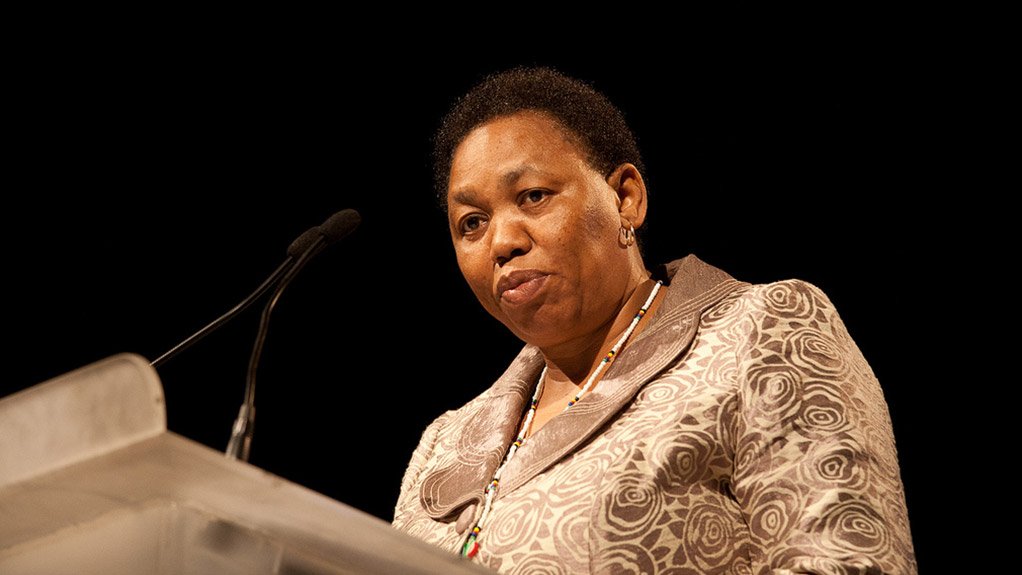/ MEDIA STATEMENT / The content on this page is not written by Polity.org.za, but is supplied by third parties. This content does not constitute news reporting by Polity.org.za.
The Minister of Basic Education, Mrs Angie Motshekga, has told the Portfolio Committee on Basic Education that she is encouraged with the progress made in the implementation of the Incremental Introduction of African Languages in public schools.
Minister Motshekga led a team of senior officials from the Department to Parliament to report on the work done towards ensuring that all public schools offer at least one indigenous African language to learners.
Minister Motshekga said although there were challenges in some provinces they were related to funding and not opposition to the initiative.
In 2013 the Department of Basic Education announced plans to strengthen the teaching of African languages through the Incremental Introduction of African Languages (IIAL) Strategy. The IIAL is a priority programme aimed at promoting some aspects of social cohesion in our society.
The strategy targets all public schools that are currently not offering a previously marginalized official language. There were 3,558 schools in 2013 which were not offering African languages. The number has since declined following the implementation of the strategy in 842 schools in 2016. Currently there are 973 schools that are implementing the IIAL in the 2017 academic year.
Earlier this year the Portfolio Committee raised concerns about the slow progress of the programme. The Minister said that on 18 May 2017 the Council of Education Ministers (CEM), which consists of the Minister, the Deputy Minister and all Provincial MECs for Education, approved that all 3,558 identified schools should implement the IIAL in Grade 1 in 2018. The objectives of the IIAL is to improve proficiency in and utility of the previously marginalized African languages and to increase access to languages by all learners beyond English and Afrikaans.
The Minister said the initiative would expand opportunities for the development of African languages to help preserve the heritage and cultures. "We want to ensure that all learners offer at least one previously marginalized official African language as part of the curriculum requirement and to strengthen the use of African languages at home language level," said Minister Motshekga.
The figures showed that Western Cape had the highest number of schools not offering any previously marginalized language with 817 schools, while Northern Cape had only 29 schools not offering an African language. Other provinces with schools not offering an African language are Gauteng at 682, KwaZulu-Natal with 686 schools, Eastern Cape has 508 schools, North West 260, Mpumalanga 184, Free State 147 and Limpopo with 245 schools.
The Northern Cape and Free State Provinces are leading in implementation of the IIAL with 90% and 89% respectively of their schools moving ahead with the roll-out in 2017. The province with the slowest progress is Western Cape at only 1% targeting only 10 schools for implementation this year.
Teacher recruitment and training will take place concurrently to ensure effective and efficient implementation from phase to phase. The hurdles in provinces have mainly been poor planning and lack of resources but these have since been overcome. The Department of Basic Education has committed to supporting all implementing schools with the necessary learner, teacher support material including audio visual lessons.
DBE Director-General, Mr Mathanzima Mweli, told the Members of Parliament that the main cost drivers for the implementation of IIAL were the provision of text books, workbooks and teacher supply. The Department has learned some lessons from the pilot conducted in 2014 but also from provinces that had made progress in the implementation.
The IIAL will be implemented incrementally in all the targeted schools in Grade 1 in 2018 and in subsequent years until Grade 12 in 2029.
Issued by Department of Basic Education
EMAIL THIS ARTICLE SAVE THIS ARTICLE ARTICLE ENQUIRY
To subscribe email subscriptions@creamermedia.co.za or click here
To advertise email advertising@creamermedia.co.za or click here











